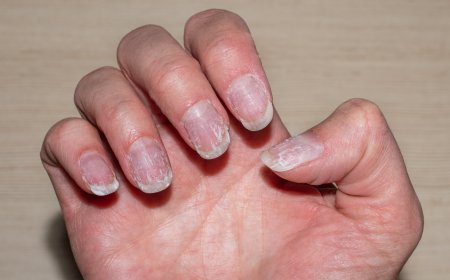Massage and Mental Health: The New Wellness Trend
Discover how massage therapy benefits mental health, supported by science. Learn its impact on stress, anxiety, and overall wellness.

In today's fast-paced world, mental health has become an essential focus for wellness, with people seeking ways to relieve stress and improve their overall well-being. One of the most recent trends gaining attention is the combination of massage therapy and mental health. Science-backed studies suggest that massage therapy has profound benefits, not just for the body but for the mind as well. This article delves into the significant advantages of massage for mental health and why it’s becoming an essential part of wellness routines.
Benefits of Massage Therapy for Mental Health
Massage therapy is not just about relaxation and pampering. Research shows that it can have a significant impact on mental health, offering a natural remedy for conditions like stress, anxiety, and depression. Below are some key benefits that massage therapy provides for mental wellness:
1. Reduces Stress and Anxiety
Stress is a common factor in today's hectic life, leading to mental health issues such as anxiety and tension. One of the main benefits of massage therapy is its ability to reduce these stress levels. Scientific studies have shown that massage helps in lowering cortisol levels, the hormone associated with stress, while simultaneously boosting serotonin and dopamine, which are neurotransmitters that enhance mood and well-being. A study from the American Massage Therapy Association (AMTA) outlines these benefits clearly, demonstrating how touch can relieve anxiety and help achieve emotional balance (AMTA - Mental Health and Massage).
2. Improves Sleep Quality
Many people suffer from insomnia or disrupted sleep patterns due to mental health issues like anxiety or depression. Massage therapy promotes relaxation, which can significantly improve sleep quality. Regular massages stimulate the parasympathetic nervous system, which promotes rest and recovery, helping individuals fall asleep faster and experience deeper, more restorative sleep. Research has shown that people who receive regular massages often report better sleep and an overall improvement in mental health.
3. Eases Symptoms of Depression
Depression is a severe mental health issue that affects millions of people worldwide. Massage therapy can be a supportive treatment for those dealing with depression. It works by stimulating the production of endorphins, natural chemicals in the brain that promote feelings of happiness and well-being. Additionally, the physical touch involved in massage fosters a sense of connection and emotional support, which can alleviate feelings of loneliness and sadness, often associated with depression.
4. Enhances Mental Clarity and Focus
In addition to emotional benefits, massage therapy also has cognitive advantages. Regular massages can enhance focus and mental clarity by improving circulation and reducing muscle tension. This allows the brain to receive more oxygen and nutrients, leading to better cognitive function and reduced mental fatigue. As a result, individuals often experience increased productivity and a clearer mind after a massage.
5. Strengthens the Mind-Body Connection
Massage helps individuals become more aware of their bodies, fostering a stronger mind-body connection. This awareness is important for maintaining emotional health and resilience. By focusing on the physical sensations during a massage, individuals can learn to better understand their emotions and stress responses, which can lead to more effective emotional regulation.
Practical Steps for Integrating Massage Therapy into Your Wellness Routine
Integrating massage therapy into your life can be a simple and effective way to support your mental health. Here’s how you can do it:
Step 1: Choose the Right Type of Massage
Not all massages are the same. Depending on your needs, you might choose a relaxation massage, deep tissue massage, or aromatherapy massage. Each type targets different aspects of physical and mental well-being. If you're unsure, start with a relaxation massage to reduce stress and anxiety.
Step 2: Schedule Regular Sessions
To experience lasting benefits, aim for regular massage sessions, ideally once a week or bi-weekly. Consistency helps maintain mental clarity and emotional balance.
Step 3: Focus on Mindfulness During Your Massage
Use the time during your massage to practice mindfulness. Focus on your breath and the sensations in your body. This practice can help calm your mind and enhance the therapeutic benefits of the massage.
Step 4: Complement with Other Wellness Practices
Massage therapy works best when combined with other wellness practices such as yoga, meditation, or a healthy diet. For example, practicing mindfulness meditation after a massage can help reinforce the relaxation and clarity you've achieved.
For more tips on mental wellness and practical steps to incorporate into your routine, visit our detailed guide on stress-relief techniques .
Conclusion & Call-to-Action
Massage therapy has proven to be a powerful tool for improving mental health, offering stress relief, better sleep, mood enhancement, and greater mental clarity. It is an accessible and natural way to improve emotional well-being and promote relaxation. If you're ready to explore the therapeutic benefits of massage, why not book your first session today?
What's Your Reaction?



















































